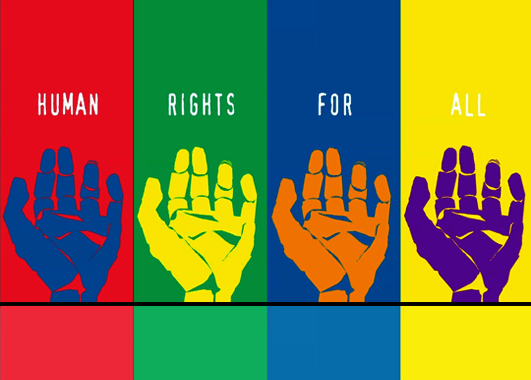
Religion, Sovereignty, Natural Rights, and the Constituent Elements of Experience
Introduction
Human experience is a tapestry woven from the threads of belief, rights, governance, and personal responsibility. This article delves into the interconnected nature of religion, sovereignty, and natural rights, focusing on how these elements shape not only individual lives but also the broader structures of society. Through an examination of these foundational pillars, we aim to uncover insights that illuminate the human condition and empower readers to engage more thoughtfully with the world around them.
Intended Audience
This discussion is crafted for individuals seeking a deeper understanding of the forces that influence human experience and societal organization. It will resonate with those curious about the moral and philosophical underpinnings of religious belief, the dynamics of individual rights in a structured society, and the responsibilities each person holds in maintaining harmony between personal freedoms and collective well-being. Whether you are a student of philosophy, an advocate for civil liberties, or simply someone intrigued by the complexities of human coexistence, this article provides a lens to examine these pivotal themes.
Purpose
The goal is to analyze the foundational elements of human experience—religion, sovereignty, and natural rights—and how they collectively shape the perception of self, society, and state. Religion offers moral frameworks that guide personal and collective behaviors, while sovereignty defines the authority within a community and its relationship to individual freedoms. Natural rights, intrinsic to all humans, form the bedrock of justice and liberty, often serving as the basis for challenging unjust structures.
In a world grappling with the tension between order and autonomy, this exploration seeks to highlight the delicate balance between individual freedoms and societal needs. By doing so, it aims to inspire reflection, foster dialogue, and encourage active participation in shaping a just and harmonious society.
Beyond intellectual inquiry, this article serves as a call to action—urging readers to embrace their roles as stewards of freedom, contributors to societal progress, and seekers of personal and collective meaning. It emphasizes that by understanding and engaging with these elemental forces, we can create lives filled with purpose, communities built on mutual respect, and systems that protect the dignity of all.
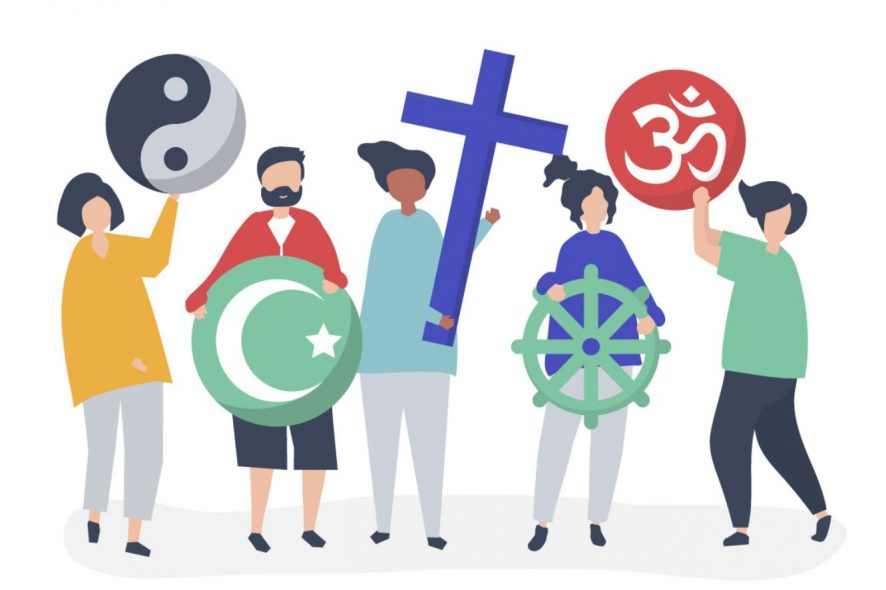
The Role of Religion in Shaping Human Experience
Religion has been a cornerstone of human civilization, influencing how individuals and societies define purpose, morality, and identity. It weaves together the personal and collective elements of experience, offering frameworks to navigate challenges and aspirations alike. This section explores the moral, individual, and societal dimensions of religion and its profound impact on human life.
- Religion as a Moral Framework
Religion provides a foundation for moral decision-making by offering structured principles that guide human behavior. Across cultures and eras, religious traditions have served as repositories of wisdom, distilling ethical practices and social norms into accessible narratives and rituals.
- Shaping Behavior and Norms: Religious teachings often define what is considered virtuous or sinful, creating standards for how individuals treat one another and their communities. For instance, principles like compassion, honesty, and accountability—rooted in religious doctrines—often find their way into laws and cultural expectations.
- Cultural Influence: Religious values influence not just personal behavior but also broader societal constructs, shaping attitudes toward family, governance, education, and more. Rituals and festivals tied to religious traditions foster communal bonds and shared identity.
- Source of Meaning in Adversity: Religion offers solace in times of suffering and uncertainty, helping individuals find purpose amid adversity. Through narratives of redemption, endurance, and divine purpose, religious traditions give people the strength to persevere.
Actionable Insight: Explore the moral teachings of a religious or spiritual tradition that resonates with you. Reflect on how these principles might guide your daily decisions and interactions, fostering a life rooted in purpose and ethical integrity.
- Religion and the Individual
On a personal level, religion profoundly influences identity, choices, and mental well-being. It shapes how individuals see themselves and their role in the world, providing tools for navigating life’s complexities.
- Shaping Individual Choices: Religious beliefs often serve as a compass for making decisions about career, relationships, and life priorities. For many, these values form the foundation of personal integrity and resilience.
- Psychological Benefits: Faith can be a source of comfort and community. Practices such as prayer, meditation, and participation in religious gatherings offer psychological benefits, reducing stress and fostering a sense of belonging.
- Identity Formation: Religion helps individuals understand their place in the larger scheme of existence, offering a framework to reconcile personal desires with collective responsibilities.
Actionable Insight: Consider exploring religious or spiritual practices that align with your personal values. Whether through meditation, prayer, or participation in a faith community, these practices can provide clarity, direction, and emotional support, fostering personal growth.
- The Interaction Between Religion and Society
Religion is not just a personal or moral force; it also profoundly influences public life and societal structures. It interacts with governance, policy-making, and cultural identity, often serving as both a unifying and divisive force.
- Influence on Public Policies: Religious institutions have historically shaped governance and legal systems, from promoting social welfare to influencing legislation on issues like education, healthcare, and human rights.
- Tension Between Secularism and Religion: In modern societies, the balance between religious values and secular governance often sparks debate. While secularism ensures neutrality in public institutions, religious groups advocate for policies that align with their beliefs, creating a dynamic interplay of ideas.
- Unity and Division: Religion can foster community and shared purpose, but differences in beliefs and practices can also lead to conflict. Understanding and respecting diverse religious perspectives are crucial for societal harmony.
Actionable Insight: Promote awareness of the role religion plays in public life by engaging in respectful dialogue across belief systems. Advocate for a society that respects diverse spiritual traditions while upholding individual freedoms, ensuring that no single worldview dominates the public sphere.
Religion, as a moral guide, a source of individual identity, and a societal force, continues to shape the way humans live, think, and interact. By understanding and engaging with its multifaceted influence, individuals can draw lessons that enrich their personal lives while contributing to the broader collective good.
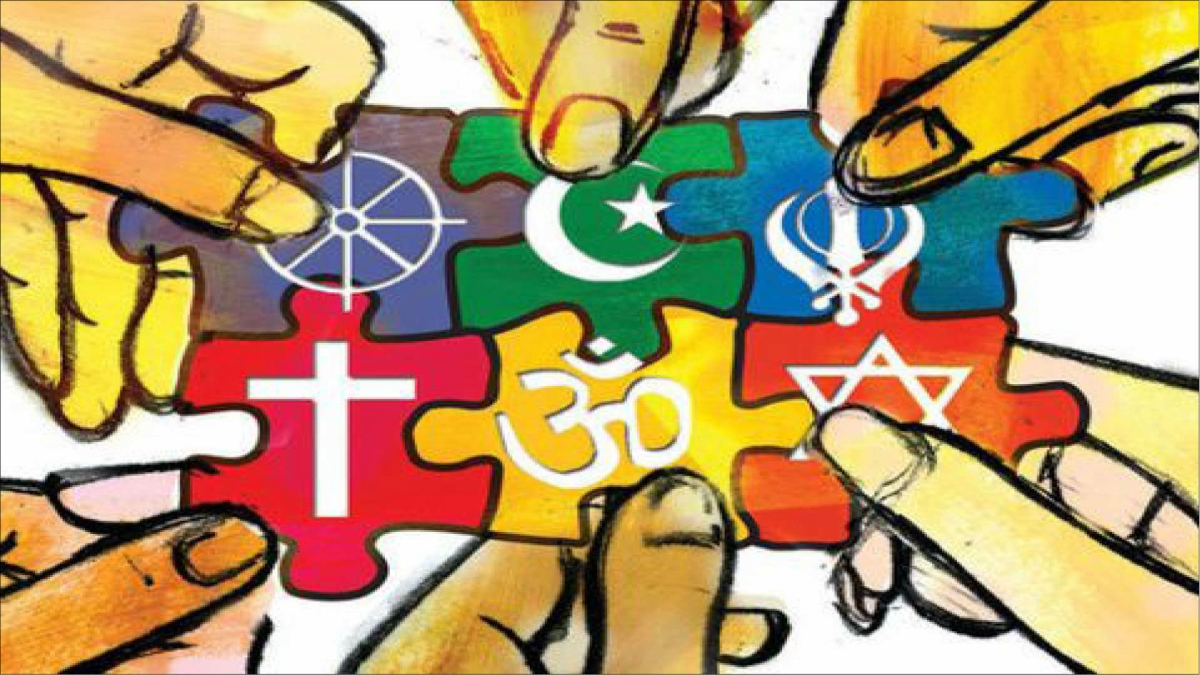
Sovereignty: The Power of the State and Its Limits
Sovereignty is one of the fundamental pillars of organized societies, representing the ultimate authority to govern within a specific territory. It defines the relationship between the state and its citizens and establishes the boundaries within which governments exercise power. However, sovereignty also demands careful regulation to prevent the erosion of individual freedoms. This section explores sovereignty’s definition, its dangers, and the need for balance in governance.
- Understanding Sovereignty
Sovereignty is the authority of a state to govern itself or another entity, encompassing the ability to make and enforce laws, maintain order, and provide security. It is the cornerstone of governance, enabling a society to function cohesively while ensuring protection for its citizens.
- Defining Sovereignty: Sovereignty is often seen as absolute power within a jurisdiction, but in practice, it is bounded by constitutions, international agreements, and cultural norms. A sovereign state holds the ultimate authority to manage its affairs, both domestically and in foreign relations.
- Role of the State: Sovereignty enables governments to enforce laws, ensure justice, and safeguard national security. A strong sovereign state can protect its citizens from internal disorder and external threats while promoting social and economic stability.
- Relationship Between Sovereignty and Individuals: While sovereignty empowers governments, it also establishes responsibilities toward citizens. The state must uphold the rule of law, protect individual rights, and foster an environment where personal freedoms are respected.
Actionable Insight: Cultivate a nuanced understanding of sovereignty, recognizing its necessity in maintaining order while advocating for limits that prevent overreach. Encourage discussions about the roles and responsibilities of governments in safeguarding both public welfare and individual freedoms.
- The Dangers of Overreach
When state power extends beyond its rightful boundaries, it risks eroding the freedoms it is meant to protect. Excessive control often manifests as authoritarianism, where sovereignty becomes a tool for oppression rather than service.
- Authoritarianism and Loss of Freedom: Overreaching sovereignty can lead to the curtailment of freedoms such as speech, movement, and expression. Governments that centralize power excessively often suppress dissent and prioritize control over citizen welfare.
- Historical Examples: History provides numerous instances of sovereign overreach, from totalitarian regimes like Nazi Germany and Stalinist Russia to modern examples of authoritarianism. These cases highlight how unchecked power undermines justice, equality, and liberty.
- Societal Harm: When governments prioritize power over people, societal trust erodes, economic stagnation occurs, and civil unrest becomes likely. The concentration of power in a few hands often leads to systemic inequality and corruption.
Actionable Insight: Support policies and legal frameworks that ensure a clear separation of powers, uphold the rule of law, and provide checks and balances. Advocate for civic vigilance and education to prevent the encroachment of authoritarian tendencies in governance.
- Balancing Sovereignty with Liberty
A government’s legitimacy rests on its ability to balance the need for societal order with the preservation of individual freedoms. Achieving this equilibrium is essential for fostering a just and harmonious society.
- Providing Structure Without Infringing Rights: Governments must enforce laws and provide security while avoiding unnecessary interference in citizens’ private lives. The state’s role should be limited to areas where collective action is indispensable, such as defense, justice, and public welfare.
- Maintaining Equilibrium: The delicate balance between liberty and order requires transparent governance, active citizen participation, and mechanisms for accountability. Overemphasis on either liberty or control risks societal instability.
- Shared Responsibility: Citizens and governments must work together to achieve balance. While the state must respect freedoms, citizens must uphold civic duties, such as obeying just laws and contributing to public discourse.
Actionable Insight: Advocate for governance that respects natural rights while promoting societal stability. Encourage active civic engagement to ensure governments remain accountable to the people they serve, fostering a society where liberty and order coexist.
Sovereignty, when exercised wisely, serves as the backbone of societal structure, enabling governments to protect and empower their citizens. However, unchecked power leads to authoritarianism and undermines the freedoms it seeks to safeguard. By understanding the principles of sovereignty and advocating for balanced governance, individuals can contribute to building societies that uphold justice, liberty, and peace.
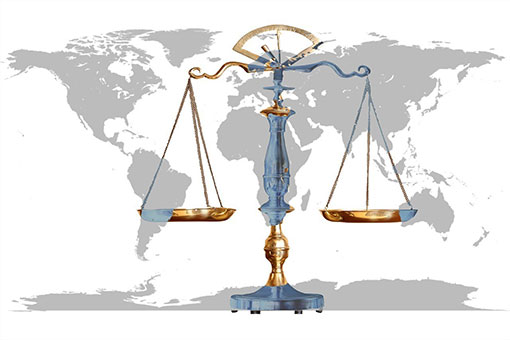
Natural Rights: Inherent Freedoms That Shape Society
Natural rights, often considered the inherent freedoms every individual possesses by virtue of being human, are fundamental to a just and equitable society. These rights underpin democratic governance, establish moral and legal boundaries for state authority, and form the foundation of human dignity. This section examines the concept of natural rights, their role in democracy, and their interaction with state authority.
- The Concept of Natural Rights
Natural rights are universal entitlements, not granted by governments but inherent to human existence. Philosophers like John Locke identified life, liberty, and property as core natural rights, which Thomas Jefferson expanded upon with the “pursuit of happiness” in the Declaration of Independence. These rights form the cornerstone of ethical governance and societal justice.
- Defining Natural Rights: Natural rights are inalienable and universal, meaning they apply equally to all individuals regardless of culture, geography, or social standing. They establish a moral framework that transcends legal systems and political ideologies.
- Foundation of Justice: A society that respects natural rights is one where justice prevails. Violations of these rights—whether by individuals or the state—undermine social stability and human dignity.
- Mutual Responsibility: Both the state and individuals must respect and uphold natural rights to ensure harmony. Governments must refrain from infringing on these rights, and citizens must advocate for their protection.
Actionable Insight: Foster awareness of natural rights as a critical component of human dignity and societal justice. Promote educational initiatives that empower citizens to recognize and defend these rights against potential violations.
- The Role of Natural Rights in Democracy
Democratic systems are built on the premise that natural rights must be protected and enshrined in governance. They serve as the moral compass guiding democratic ideals like free speech, equal treatment, and self-determination.
- Shaping Democratic Ideals: Rights such as freedom of expression, assembly, and participation are extensions of natural rights. They ensure that individuals can engage in self-governance, advocate for their interests, and hold power accountable.
- Building Democratic Systems: The recognition of natural rights has historically been pivotal in the development of democratic governance. Movements for civil liberties, suffrage, and equality have all been rooted in the demand for respect of inherent freedoms.
- Protection Through Participation: Democracies thrive when citizens actively participate in civic life, whether by voting, engaging in public discourse, or holding leaders accountable. This active participation safeguards natural rights and ensures their continued evolution.
Actionable Insight: Encourage citizens to embrace their civic responsibilities, such as voting and participating in public discourse. Advocate for open dialogue on how democratic systems can better protect and expand natural rights for all members of society.
- Natural Rights and State Authority
The interaction between natural rights and state authority is often marked by tension, as governments must balance individual freedoms with the collective good. While states are tasked with protecting rights, they sometimes overstep, leading to conflicts.
- Potential Conflicts: Sovereign authority can clash with natural rights when laws or policies disproportionately infringe on individual freedoms. Surveillance programs, censorship, and unequal application of justice are examples of such conflicts.
- The Need for Protective Laws: Legal frameworks must ensure that state authority does not erode natural rights. This involves creating checks and balances, fostering transparency, and instituting avenues for redress when violations occur.
- Promoting the Common Good: The state’s role is not only to avoid infringing on rights but also to create conditions that enable their full expression. This includes protecting vulnerable populations, ensuring equal opportunities, and addressing systemic inequalities.
Actionable Insight: Advocate for robust legal and political structures that prioritize natural rights while balancing the needs of the broader community. Encourage transparency and accountability in governance to protect against potential overreach.
Natural rights are the foundation of justice, democracy, and individual dignity. They demand vigilance and active participation from both governments and citizens to ensure their preservation and expansion. By understanding their significance and advocating for their protection, individuals can contribute to creating societies that honor freedom, equality, and shared humanity.

The Constituent Elements of Human Experience
Human experience is a complex interplay of perception, cognition, and the ability to confront life’s challenges, including suffering. It is through this dynamic process that individuals interpret reality, construct meaning, and find purpose. This section explores how perception, cognition, and suffering contribute to the richness of human existence, and offers actionable insights to deepen understanding and foster growth.
- Perception and Reality
Perception is the lens through which individuals experience the world, blending subjective and objective dimensions. It not only influences how people interpret reality but also impacts their interactions with others and their environment.
- The Role of Perception: Perception shapes human understanding of the world by filtering sensory inputs through mental frameworks. It determines how individuals respond to their surroundings, prioritize experiences, and make decisions.
- Subjective vs. Objective Reality: While objective reality exists independently, human experience is inherently subjective, colored by emotions, biases, and personal history. This tension can lead to misunderstandings or enriched perspectives, depending on how it is navigated.
- Impact on Human Experience: Perception can either enhance or limit one’s engagement with life. Awareness of biases and openness to alternative viewpoints allow for a more comprehensive understanding of the world.
Actionable Insight: Encourage individuals to critically examine their perceptions and acknowledge the role of personal biases. This self-awareness fosters better decision-making, empathy, and adaptability in navigating the complexities of life.
- Cognition and Meaning-Making
The human mind is a meaning-making system, constructing frameworks to interpret experiences and navigate the world. These cognitive structures, encompassing beliefs, values, and ideologies, are essential for personal identity and societal cohesion.
- Constructing Meaning: People make sense of their lives by connecting experiences to larger narratives. These narratives, rooted in culture, religion, or personal reflection, provide a sense of purpose and direction.
- Cognitive Frameworks: Belief systems and values serve as mental scaffolding, guiding behavior and decision-making. However, rigid frameworks can lead to dogmatism, while overly flexible ones may cause confusion or existential uncertainty.
- Interpreting the World: The interplay between inherited ideologies and personal insights enables individuals to continually refine their understanding of life. This process requires critical thinking and openness to growth.
Actionable Insight: Encourage self-reflection to identify and align personal values and beliefs with lived experiences. Emphasize the importance of questioning inherited frameworks to develop a worldview that is both meaningful and adaptable.
- The Role of Suffering in Shaping Human Experience
Suffering is an intrinsic aspect of life, shaping human resilience, empathy, and growth. While often seen as a negative experience, suffering also offers opportunities for profound personal and societal transformation.
- Suffering as a Universal Phenomenon: Pain, loss, and adversity are inescapable elements of existence. They challenge individuals to confront their vulnerabilities and seek deeper meaning.
- Responses to Suffering: Societies and individuals employ various strategies to make sense of suffering, from religious interpretations to philosophical and psychological approaches. These responses influence resilience and the ability to find purpose in adversity.
- Growth Through Adversity: Suffering often catalyzes personal development, teaching lessons about patience, gratitude, and the interconnectedness of life. It can also inspire collective action to address systemic issues, fostering societal progress.
Actionable Insight: Promote a growth mindset that views suffering as an opportunity for learning and transformation. Encourage practices such as mindfulness, gratitude, and community engagement to navigate challenges and build resilience.
The constituent elements of human experience—perception, cognition, and suffering—offer profound insights into the nature of existence. By understanding how these elements interact, individuals can cultivate deeper awareness, enrich their sense of purpose, and contribute meaningfully to society. This journey of self-discovery and growth is at the heart of what it means to be human.

The Balance Between Individual Rights and Societal Order
The interplay between individual freedoms and societal needs lies at the core of governance and human coexistence. Achieving a harmonious balance requires individuals to embrace personal responsibility, navigate competing interests, and actively safeguard freedoms against erosion. This section examines the dynamic relationship between individual rights and societal order, highlighting the importance of responsibility, boundary-setting, and vigilance.
- The Importance of Personal Responsibility
Personal responsibility serves as the foundation for a society that respects individual rights while maintaining order. It fosters mutual respect, accountability, and a sense of shared purpose.
- Individual Role in Society: Each person plays a crucial role in upholding societal norms, supporting community initiatives, and respecting others’ freedoms.
- Connection to Societal Harmony: A responsible citizenry enables smoother interactions between the state and its people, reducing the need for overregulation or excessive state intervention.
- Empowerment Through Responsibility: When individuals take ownership of their actions, they contribute to societal progress and safeguard their own rights. This empowerment is especially critical in addressing shared challenges like inequality, environmental issues, and public health crises.
Actionable Insight: Encourage individuals to actively participate in societal development through community engagement, education, and personal growth. Promote initiatives that build awareness of how small, responsible actions contribute to larger societal well-being.
- Defining Boundaries: When Individual Rights Collide with Societal Needs
Balancing individual freedoms with societal stability requires a nuanced understanding of boundaries. Tensions often arise when personal liberties conflict with collective responsibilities, such as public safety, environmental protection, or social equity.
- Exploring the Tension: The friction between personal freedom and societal order becomes apparent in debates on issues like public health mandates, taxation, and environmental regulations. These conflicts highlight the need for frameworks that respect both perspectives.
- Balancing Freedom and Stability: Ensuring individual freedoms while maintaining societal stability involves crafting policies that address the common good without undermining core rights. This balance relies on inclusive dialogue and fair representation in decision-making processes.
- Role of Governance: Governments must act as mediators, protecting individual rights while fostering conditions for collective well-being. Transparency, fairness, and accountability are essential in this process.
Actionable Insight: Advocate for participatory governance where diverse voices are included in shaping policies. Support the development of legal frameworks that prioritize equity, inclusivity, and the preservation of personal freedoms.
- Guarding Against the Erosion of Freedom
Freedom is both a privilege and a responsibility, requiring constant vigilance to protect it from erosion by authoritarianism, societal pressures, or complacency. Safeguarding freedoms involves active participation, legal awareness, and resistance to encroachments.
- Protecting Freedoms Against Overreach: History provides numerous examples of states or institutions curtailing freedoms under the guise of security, progress, or morality. Awareness and resistance are key to preventing such overreach.
- Empowering Individuals: Knowledge of legal rights, civic engagement, and active advocacy equip citizens to defend their freedoms. This includes understanding how to challenge unjust laws, policies, or actions.
- Building Resilient Communities: Collective efforts to promote education, dialogue, and inclusivity strengthen societal defenses against threats to freedom, ensuring that individual rights are respected and protected.
Actionable Insight: Promote legal literacy programs, encourage civic activism, and foster environments that empower individuals to hold institutions accountable. Highlight the importance of collective vigilance in preserving freedom for future generations.
The balance between individual rights and societal order is a delicate yet vital endeavor. By embracing personal responsibility, understanding and respecting boundaries, and actively guarding against encroachments, individuals and communities can work together to create a society that thrives on both freedom and harmony. This balance, while challenging, is the cornerstone of a just and equitable world.
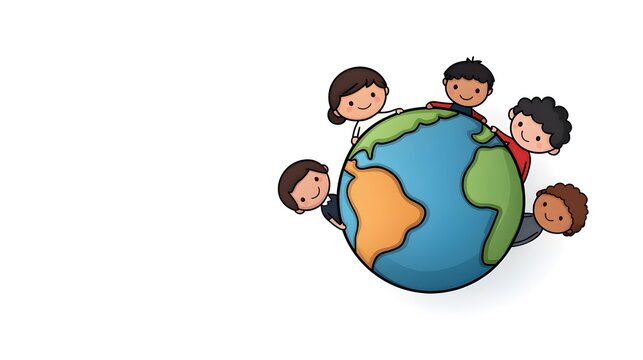
Conclusion
Summary of Key Points
- The Interplay of Religion, Sovereignty, and Natural Rights: These three pillars shape both societal structures and individual lives. Religion provides moral frameworks and meaning; sovereignty ensures order while safeguarding freedoms; and natural rights serve as the bedrock of justice and dignity.
- The Balance Between Freedom and Order: A functioning democracy hinges on balancing individual freedoms with collective responsibilities. It is crucial to protect personal rights while fostering societal harmony.
- Understanding Human Experience: Human experience is enriched through self-reflection on perception, cognition, and responsibility. Recognizing these elements can lead to personal growth and a deeper connection with society.
Call to Action
- Engage in Protecting Freedoms: Be vigilant in safeguarding personal freedoms and natural rights. Advocate for balanced governance that respects individual liberties while addressing societal needs.
- Promote Education and Awareness: Spread knowledge about the importance of religion, sovereignty, and natural rights. Encourage inclusive conversations that strengthen the foundations of a just and humane society.
- Contribute to Societal Progress: Take personal responsibility for your role in building better communities. Participate in civic activities, support equitable policies, and act with compassion toward others.
Participate and Donate to MEDA Foundation
Your support is vital in helping MEDA Foundation empower individuals with autism and create self-sustaining ecosystems. Together, we can build a more inclusive, compassionate, and empowered future. Participate in our initiatives or donate today to make a meaningful impact.
Book References
- The Social Contract by Jean-Jacques Rousseau
- On Liberty by John Stuart Mill
- The Rights of Man by Thomas Paine
- Man’s Search for Meaning by Viktor E. Frankl
- Democracy in America by Alexis de Tocqueville








